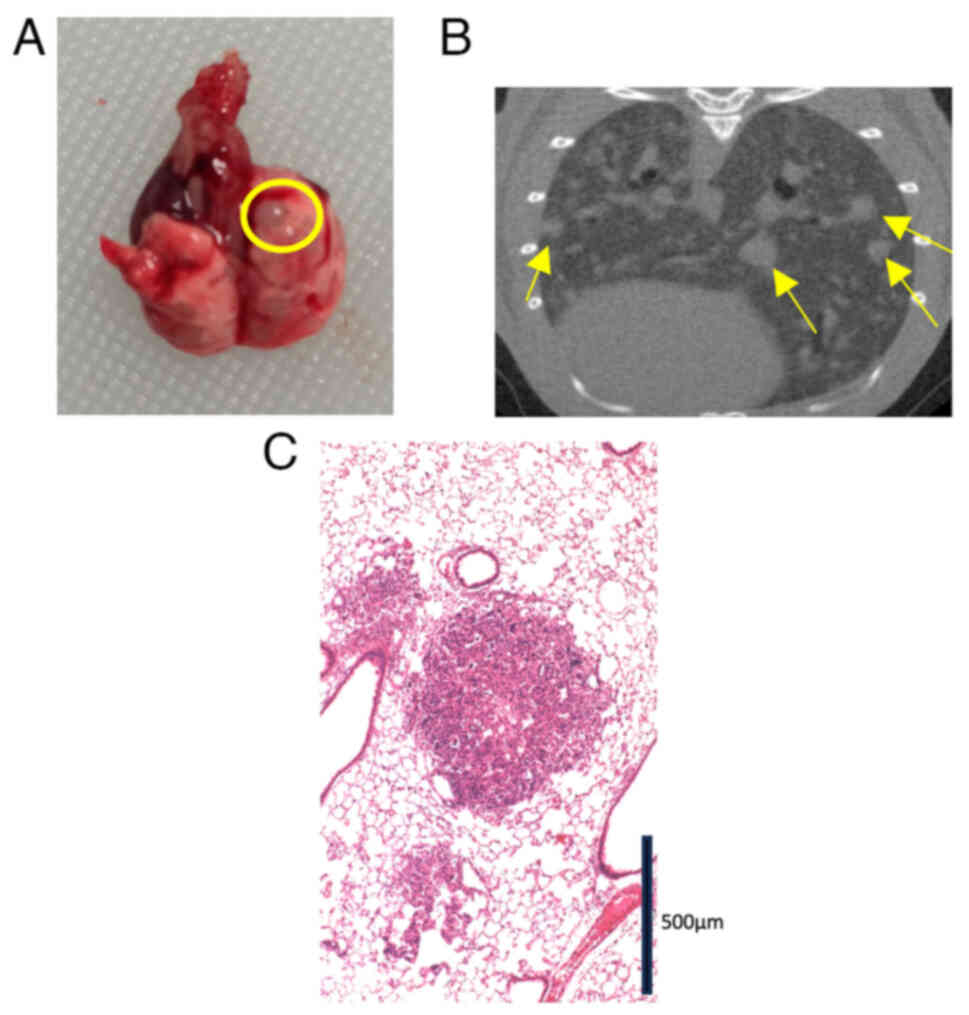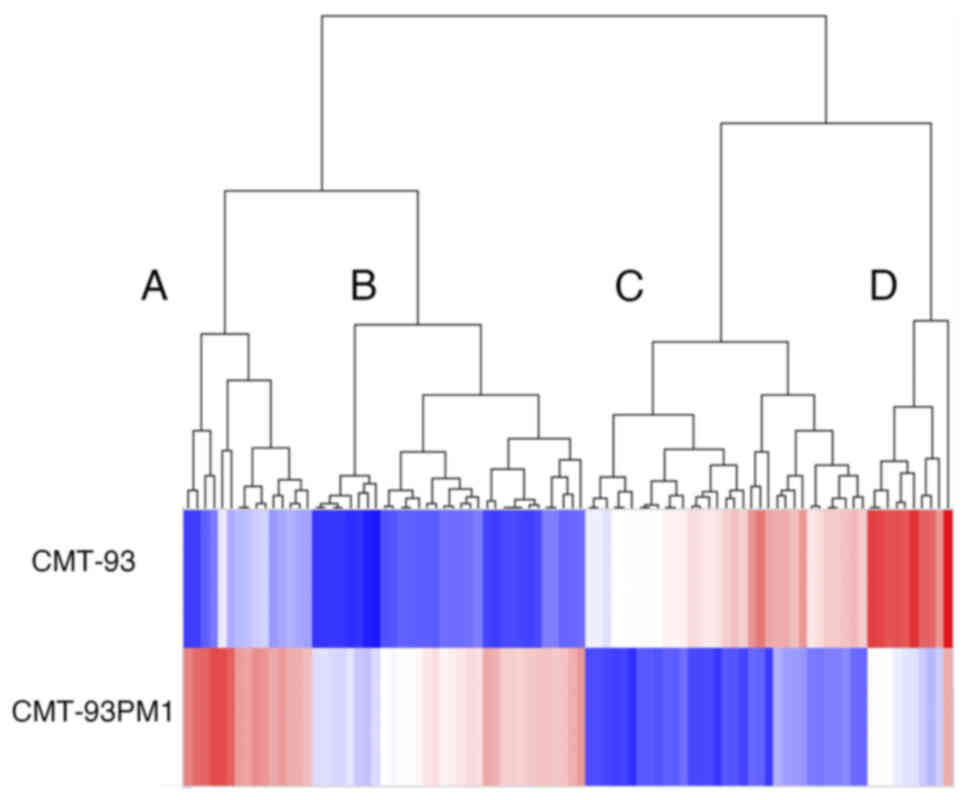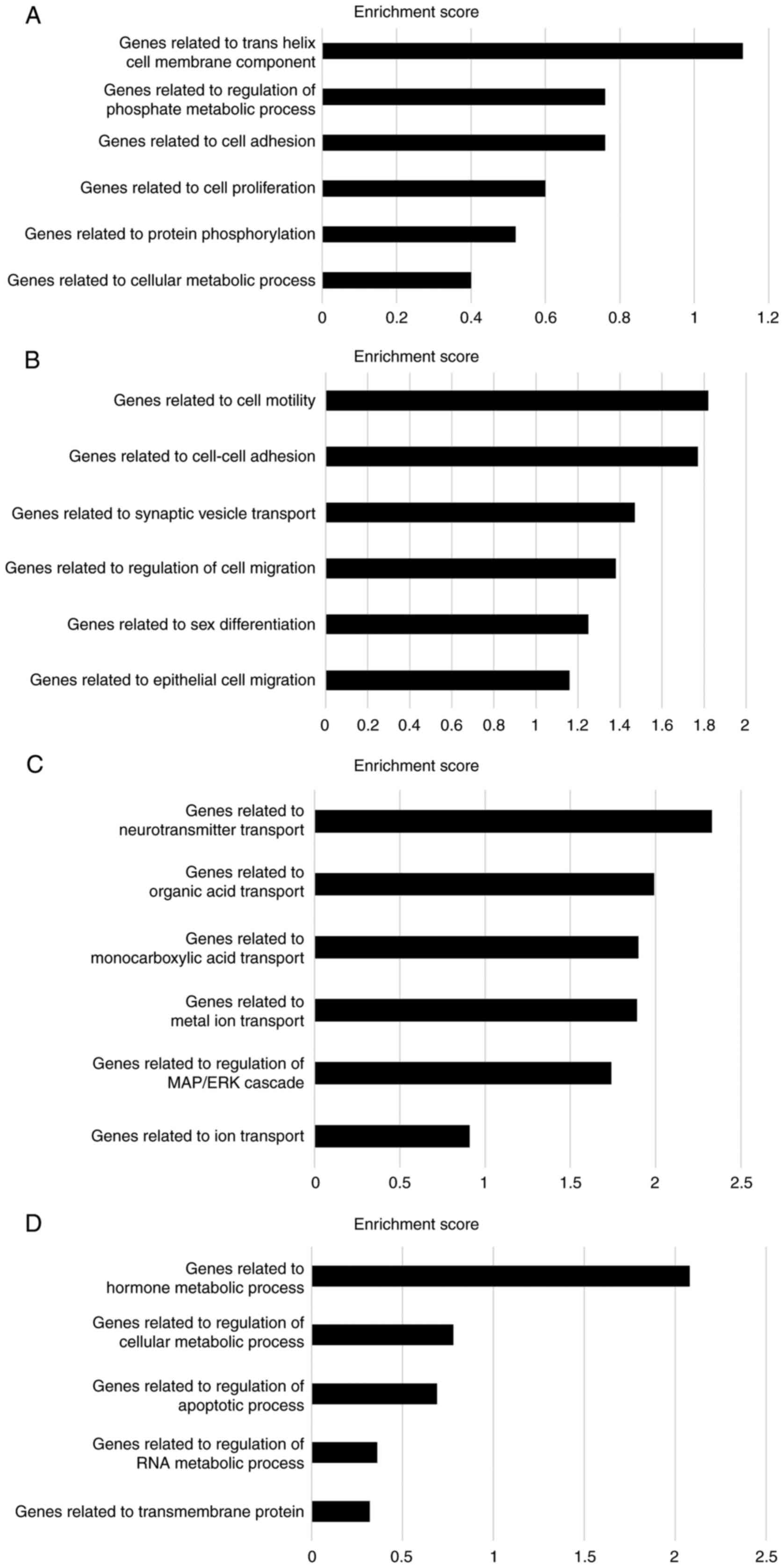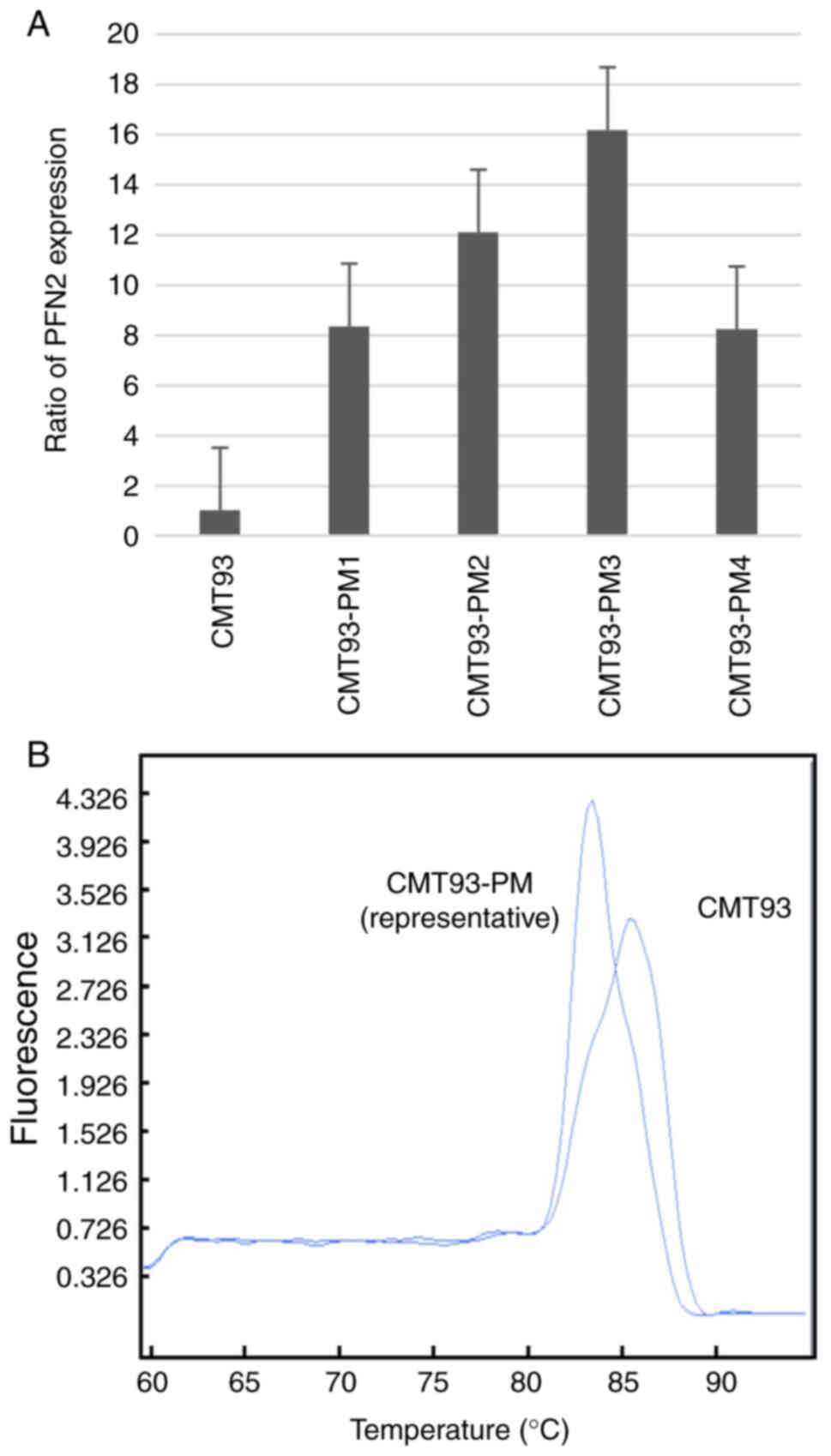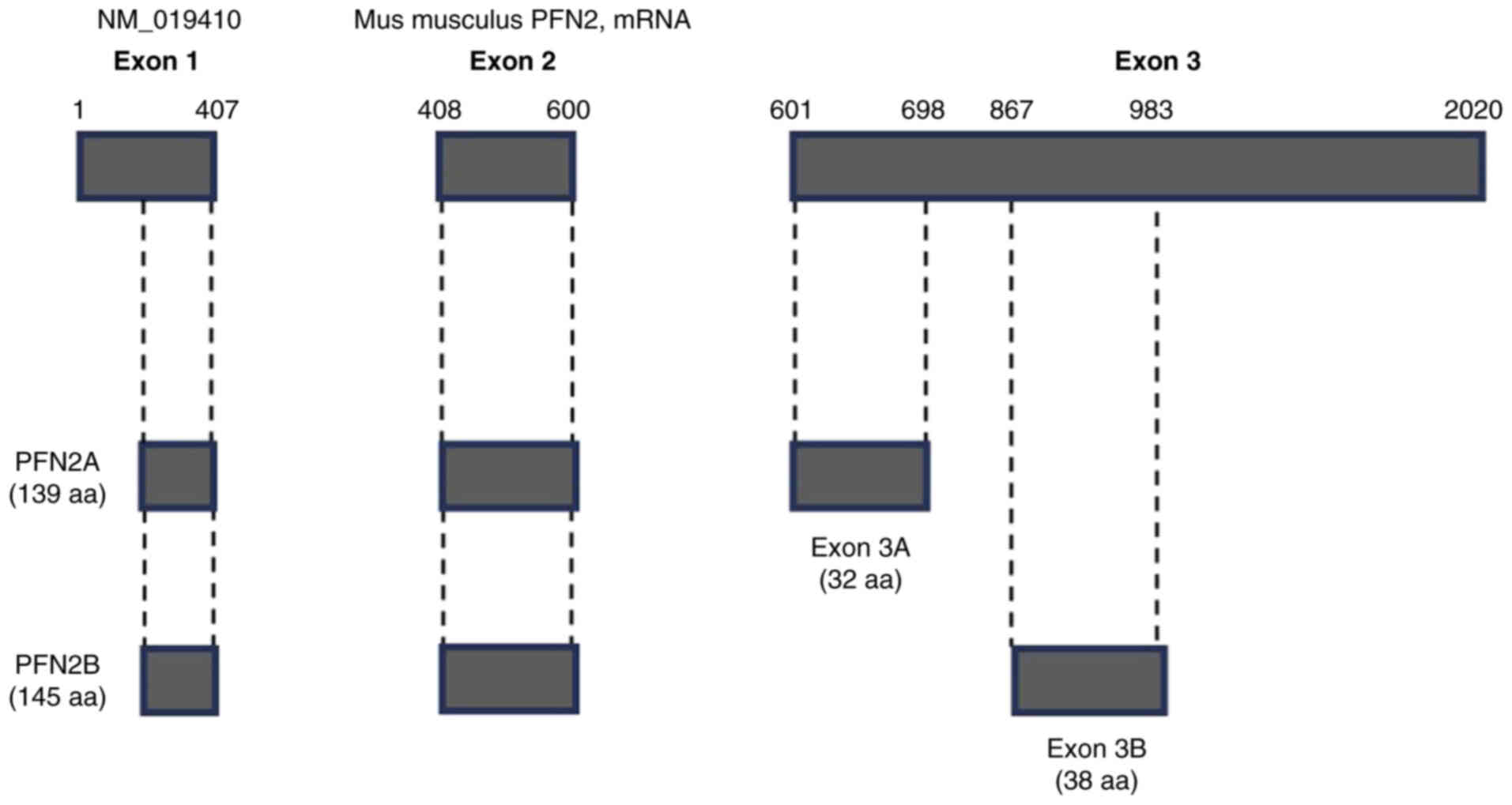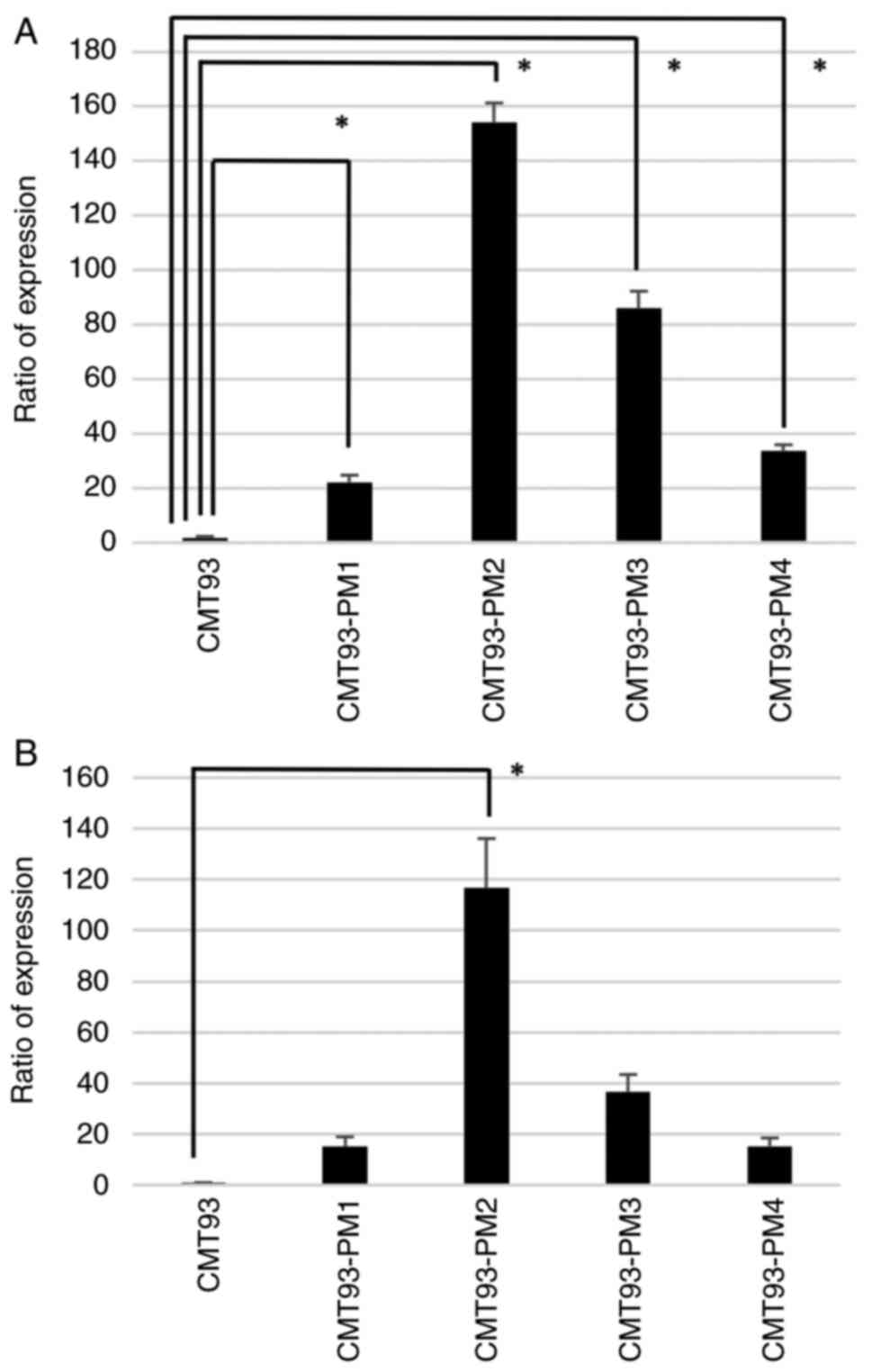|
1
|
Keum N and Giovannucci E: Global burden of
colorectal cancer: Emerging trends, risk factors and prevention
strategies. Nat Rev Gastroenterol Hepatol. 16:713–732. 2019.
View Article : Google Scholar : PubMed/NCBI
|
|
2
|
Van Cutsem E, Cervantes A, Adam R, Sobrero
A, Van Krieken JH, Aderka D, Aguilar EA, Bardelli A, Benson A,
Bodoky G, et al: ESMO consensus guidelines for the management of
patients with metastatic colorectal cancer. Ann Oncol.
27:1386–1422. 2016. View Article : Google Scholar : PubMed/NCBI
|
|
3
|
Muratore A, Zorzi D, Bouzari H, Amisano M,
Massucco P, Sperti E and Capussotti L: Asymptomatic colorectal
cancer with un-resectable liver metastases: Immediate colorectal
resection or up-front systemic chemotherapy? Ann Surg Oncol.
14:766–770. 2007. View Article : Google Scholar : PubMed/NCBI
|
|
4
|
Van Cutsem E, Nordlinger B, Adam R, Köhne
CH, Pozzo C, Poston G, Ychou M and Rougier P; European Colorectal
Metastases Treatment Group, : Towards a pan-European consensus on
the treatment of patients with colorectal liver metastases. Eur J
Cancer. 42:2212–2221. 2006. View Article : Google Scholar : PubMed/NCBI
|
|
5
|
Parnaby CN, Bailey W, Balasingam A,
Beckert L, Eglinton T, Fife J, Frizelle FA, Jeffery M and Watson
AJ: Pulmonary staging in colorectal cancer: A review. Colorectal
Dis. 14:660–670. 2012. View Article : Google Scholar : PubMed/NCBI
|
|
6
|
Watanabe T, Muro K, Ajioka Y, Hashiguchi
Y, Ito Y, Saito Y, Hamaguchi T, Ishida H, Ishiguro M, Ishihara S,
et al: Japanese society for cancer of the colon and rectum (JSCCR)
guidelines 2016 for the treatment of colorectal cancer. Int J Clin
Oncol. 23:1–34. 2018. View Article : Google Scholar : PubMed/NCBI
|
|
7
|
Chandra R, Karalis JD, Liu C, Murimwa GZ,
Voth Park J, Heid CA, Reznik SI, Huang E, Minna JD and Brekken RA:
The colorectal cancer tumor microenvironment and its impact on
liver and lung metastasis. Cancers (Basel). 13:62062021. View Article : Google Scholar : PubMed/NCBI
|
|
8
|
Zhang N, Di J, Wang Z, Gao P, Jiang B and
Su X: Genomic profiling of colorectal cancer with isolated lung
metastasis. Cancer Cell Int. 20:2812020. View Article : Google Scholar : PubMed/NCBI
|
|
9
|
Yamamoto T, Kawada K, Itatani Y, Inamoto
S, Okamura R, Iwamoto M, Miyamoto E, Chen-Yoshikawa TF, Hirai H,
Hasegawa S, et al: Loss of SMAD4 promotes lung metastasis of
colorectal cancer by accumulation of CCR1+ tumor-associated
neutrophils through CCL15-CCR1 axis. Clin Cancer Res. 23:833–844.
2017. View Article : Google Scholar : PubMed/NCBI
|
|
10
|
Liu J, Shao Y, He Y, Ning K, Cui X, Liu F,
Wang Z and Li F: MORC2 promotes development of an aggressive
colorectal cancer phenotype through inhibition of NDRG1. Cancer
Sci. 110:135–146. 2019. View Article : Google Scholar : PubMed/NCBI
|
|
11
|
Hu XT, Xing W, Zhao RS, Tan Y, Wu XF, Ao
LQ, Li Z, Yao MW, Yuan M, Guo W, et al: HDAC2 inhibits EMT-mediated
cancer metastasis by downregulating the long noncoding RNA H19 in
colorectal cancer. J Exp Clin Cancer Res. 39:2702020. View Article : Google Scholar : PubMed/NCBI
|
|
12
|
Kim SH, Choi SJ, Cho YB, Kang MW, Lee J,
Lee WY, Chun HK, Choi YS, Kim HK, Han J and Kim J: Differential
gene expression during colon-to-lung metastasis. Oncol Rep.
25:629–636. 2011. View Article : Google Scholar : PubMed/NCBI
|
|
13
|
Tajima Y, Tsuruta M, Hasegawa H,
Okabayashi K, Ishida T, Yahagi M, Makino A, Koishikawa K, Akimoto
S, Sin DD and Kitagawa Y: Association of surfactant protein D with
pulmonary metastases from colon cancer. Oncol Lett. 20:3222020.
View Article : Google Scholar : PubMed/NCBI
|
|
14
|
Huang DW, Sherman BT, Tan Q, Kir J, Liu D,
Bryant D, Guo Y, Stephens R, Baseler MW, Lane HC and Lempicki RA:
David bioinformatics resources: Expanded annotation database and
novel algorithms to better extract biology from large gene lists.
Nucleic Acids Res. 35:W169–W175. 2007. View Article : Google Scholar : PubMed/NCBI
|
|
15
|
Huang R, Yuan DJ, Li S, Liang XS, Gao Y,
Lan XY, Qin HM, Ma YF, Xu GY, Schachner M, et al: NCAM regulates
temporal specification of neural progenitor cells via profilin2
during corticogenesis. J Cell Biol. 219:e2019021642020. View Article : Google Scholar : PubMed/NCBI
|
|
16
|
Livak KJ and Schmittgen TD: Analysis of
relative gene expression data using real-time quantitative PCR and
the 2(−Delta Delta C(T)) method. Methods. 25:402–408. 2001.
View Article : Google Scholar : PubMed/NCBI
|
|
17
|
Mouneimne G, Hansen SD, Selfors LM, Petrak
L, Hickey MM, Gallegos LL, Simpson KJ, Lim J, Gertler FB, Hartwig
JH, et al: Differential remodeling of actin cytoskeleton
architecture by profilin isoforms leads to distinct effects on cell
migration and invasion. Cancer Cell. 22:615–630. 2012. View Article : Google Scholar : PubMed/NCBI
|
|
18
|
Lambrechts A, Braun A, Jonckheere V,
Aszodi A, Lanier LM, Robbens J, Van Colen I, Vandekerckhove J,
Fässler R and Ampe C: Profilin II is alternatively spliced,
resulting in profilin isoforms that are differentially expressed
and have distinct biochemical properties. Mol Cell Biol.
20:8209–8219. 2000. View Article : Google Scholar : PubMed/NCBI
|
|
19
|
Di Nardo A, Gareus R, Kwiatkowski D and
Witke W: Alternative splicing of the mouse profilin II gene
generates functionally different profilin isoforms. J Cell Sci.
113:3795–3803. 2000. View Article : Google Scholar : PubMed/NCBI
|
|
20
|
Wang H, Fu W, Im JH, Zhou Z, Santoro SA,
Iyer V, DiPersio CM, Yu QC, Quaranta V, Al-Mehdi A and Muschel RJ:
Tumor cell alpha3beta1 integrin and vascular laminin-5 mediate
pulmonary arrest and metastasis. J Cell Biol. 164:935–941. 2004.
View Article : Google Scholar : PubMed/NCBI
|
|
21
|
Shu R, Xu Y, Tian Y, Zeng Y, Sun L, Gong
F, Lei Y, Wang K and Luo H: Differential expression profiles of
long noncoding RNA and mRNA in colorectal cancer tissues from
patients with lung metastasis. Mol Med Rep. 17:5666–5675.
2018.PubMed/NCBI
|
|
22
|
Tang L, Lei YY, Liu YJ, Tang B and Yang
SM: The expression of seven key genes can predict distant
metastasis of colorectal cancer to the liver or lung. J Dig Dis.
21:639–649. 2020. View Article : Google Scholar : PubMed/NCBI
|
|
23
|
Dai W, Guo C, Wang Y, Li Y, Xie R, Wu J,
Yao B, Xie D, He L, Li Y, et al: Identification of hub genes and
pathways in lung metastatic colorectal cancer. BMC Cancer.
23:3232023. View Article : Google Scholar : PubMed/NCBI
|
|
24
|
Lu M, Zessin AS, Glover W and Hsu DS:
Activation of the mTOR pathway by oxaliplatin in the treatment of
colorectal cancer liver metastasis. PLoS One. 12:e01694392017.
View Article : Google Scholar : PubMed/NCBI
|
|
25
|
Li LN, Zhang HD, Yuan SJ, Tian ZY and Sun
ZX: Establishment and characterization of a novel human colorectal
cancer cell line (CLY) metastasizing spontaneously to the liver in
nude mice. Oncol Rep. 17:835–840. 2007.PubMed/NCBI
|
|
26
|
Govaert KM, Emmink BL, Nijkamp MW, Cheung
ZJ, Steller EJ, Fatrai S, de Bruijn MT, Kranenburg O and Rinkes IH:
Hypoxia after liver surgery imposes an aggressive cancer stem cell
phenotype on residual tumor cells. Ann Surg. 259:750–759. 2014.
View Article : Google Scholar : PubMed/NCBI
|
|
27
|
Salah S, Ardissone F, Gonzalez M, Gervaz
P, Riquet M, Watanabe K, Zabaleta J, Al-Rimawi D, Toubasi S, Massad
E, et al: Pulmonary metastasectomy in colorectal cancer patients
with previously resected liver metastasis: Pooled analysis. Ann
Surg Oncol. 22:1844–1850. 2015. View Article : Google Scholar : PubMed/NCBI
|
|
28
|
Wang JY, Sun J, Huang MY, Wang YS, Hou MF,
Sun Y, He H, Krishna N, Chiu SJ, Lin S, et al: STIM1 overexpression
promotes colorectal cancer progression, cell motility and COX-2
expression. Oncogene. 34:4358–4367. 2015. View Article : Google Scholar : PubMed/NCBI
|
|
29
|
Jackstadt R, Röh S, Neumann J, Jung P,
Hoffmann R, Horst D, Berens C, Bornkamm GW, Kirchner T, Menssen A
and Hermeking H: AP4 is a mediator of epithelial-mesenchymal
transition and metastasis in colorectal cancer. J Exp Med.
210:1331–1350. 2013. View Article : Google Scholar : PubMed/NCBI
|
|
30
|
Eckey M, Kuphal S, Straub T, Rümmele P,
Kremmer E, Bosserhoff AK and Becker PB: Nucleosome remodeler SNF2L
suppresses cell proliferation and migration and attenuates Wnt
signaling. Mol Cell Biol. 32:2359–2371. 2012. View Article : Google Scholar : PubMed/NCBI
|
|
31
|
Katoh M: Multi-layered prevention and
treatment of chronic inflammation, organ fibrosis and cancer
associated with canonical WNT/β-catenin signaling activation
(Review). Int J Mol Med. 42:713–725. 2018.PubMed/NCBI
|
|
32
|
Yan X, Yan L, Liu S, Shan Z, Tian Y and
Jin Z: N-cadherin, a novel prognostic biomarker, drives malignant
progression of colorectal cancer. Mol Med Rep. 12:2999–3006. 2015.
View Article : Google Scholar : PubMed/NCBI
|
|
33
|
Sun X, Hu F, Hou Z, Chen Q, Lan J, Luo X,
Wang G, Hu J and Cao Z: SIX4 activates Akt and promotes tumor
angiogenesis. Exp Cell Res. 383:1114952019. View Article : Google Scholar : PubMed/NCBI
|
|
34
|
Yang J, Nie J, Ma X, Wei Y, Peng Y and Wei
X: Targeting PI3K in cancer: Mechanisms and advances in clinical
trials. Mol Cancer. 18:262019. View Article : Google Scholar : PubMed/NCBI
|
|
35
|
Zhang D, Bi J, Liang Q, Wang S, Zhang L,
Han F, Li S, Qiu B, Fan X, Chen W, et al: VCAM1 promotes tumor cell
invasion and metastasis by inducing EMT and transendothelial
migration in colorectal cancer. Front Oncol. 10:10662020.
View Article : Google Scholar : PubMed/NCBI
|
|
36
|
Kallio JP, Hopkins-Donaldson S, Baker AH
and Kähäri VM: TIMP-3 promotes apoptosis in nonadherent small cell
lung carcinoma cells lacking functional death receptor pathway. Int
J Cancer. 128:991–996. 2011. View Article : Google Scholar : PubMed/NCBI
|
|
37
|
Lin H, Zhang Y, Wang H, Xu D, Meng X, Shao
Y, Lin C, Ye Y, Qian H and Wang S: Tissue inhibitor of
metalloproteinases-3 transfer suppresses malignant behaviors of
colorectal cancer cells. Cancer Gene Ther. 19:845–851. 2012.
View Article : Google Scholar : PubMed/NCBI
|
|
38
|
Kiselev Y, Andersen S, Johannessen C,
Fjukstad B, Olsen KS, Stenvold H, Al-Saad S, Donnem T, Richardsen
E, Bremnes RM and Busund LT: Transcription factor PAX6 as a novel
prognostic factor and putative tumour suppressor in non-small cell
lung cancer. Sci Rep. 8:50592018. View Article : Google Scholar : PubMed/NCBI
|
|
39
|
Ma CY, Zhang CP, Zhong LP, Pan HY, Chen
WT, Wang LZ, Andrew OW, Ji T and Han W: Decreased expression of
profilin 2 in oral squamous cell carcinoma and its
clinicopathological implications. Oncol Rep. 26:813–823.
2011.PubMed/NCBI
|
|
40
|
Jeong DH, Choi YN, Seo TW, Lee JS and Yoo
SJ: Ubiquitin-proteasome dependent regulation of Profilin2 (Pfn2)
by a cellular inhibitor of apoptotic protein 1 (cIAP1). Biochem
Biophys Res Commun. 506:423–428. 2018. View Article : Google Scholar : PubMed/NCBI
|
|
41
|
Witke W, Podtelejnikov AV, Di Nardo A,
Sutherland JD, Gurniak CB, Dotti C and Mann M: In mouse brain
profilin I and profilin II associate with regulators of the
endocytic pathway and actin assembly. EMBO J. 17:967–976. 1998.
View Article : Google Scholar : PubMed/NCBI
|
|
42
|
Boyl PP, Di Nardo A, Mulle C,
Sassoè-Pognetto M, Panzanelli P, Mele A, Kneussel M, Costantini V,
Perlas E, Massimi M, et al: Profilin2 contributes to synaptic
vesicle exocytosis, neuronal excitability, and novelty-seeking
behavior. EMBO J. 26:2991–3002. 2007. View Article : Google Scholar : PubMed/NCBI
|
|
43
|
Tang YN, Ding WQ, Guo XJ, Yuan XW, Wang DM
and Song JG: Epigenetic regulation of Smad2 and Smad3 by profilin-2
promotes lung cancer growth and metastasis. Nat Commun. 6:82302015.
View Article : Google Scholar : PubMed/NCBI
|
|
44
|
Obinata D, Funakoshi D, Takayama K, Hara
M, Niranjan B, Teng L, Lawrence MG, Taylor RA, Risbridger GP,
Suzuki Y, et al: OCT1-target neural gene PFN2 promotes tumor growth
in androgen receptor-negative prostate cancer. Sci Rep.
12:60942022. View Article : Google Scholar : PubMed/NCBI
|
|
45
|
Cao Q, Liu Y, Wu Y, Hu C, Sun L, Wang J,
Li C, Guo M, Liu X, Lv J, et al: Profilin 2 promotes growth,
metastasis, and angiogenesis of small cell lung cancer through
cancer-derived exosomes. Aging (Albany NY). 12:25981–25999. 2020.
View Article : Google Scholar : PubMed/NCBI
|
|
46
|
Zhang H, Yang W, Yan J, Zhou K, Wan B, Shi
P, Chen Y, He S and Li D: Loss of profilin 2 contributes to
enhanced epithelial-mesenchymal transition and metastasis of
colorectal cancer. Int J Oncol. 53:1118–1128. 2018.PubMed/NCBI
|















